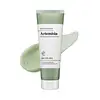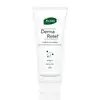What's inside
What's inside
 Key Ingredients
Key Ingredients

 Benefits
Benefits

 Concerns
Concerns

 Ingredients Side-by-side
Ingredients Side-by-side

Glycerin
HumectantWater
Skin ConditioningSodium Cocoyl Glycinate
CleansingSodium Lauroyl Glutamate
1,2-Hexanediol
Skin ConditioningGlycol
HumectantLauryl Betaine
CleansingHydroxypropyl Starch Phosphate
Artemisia Capillaris Extract
Melia Azadirachta Leaf Extract
Skin ConditioningMalt Extract
Skin ProtectingMelia Azadirachta Flower Extract
Skin ConditioningCoccinia Indica Fruit Extract
Skin ConditioningSolanum Melongena Fruit Extract
Skin ConditioningAloe Barbadensis Flower Extract
EmollientOcimum Sanctum Leaf Extract
Skin ConditioningCurcuma Longa Root Extract
MaskingCorallina Officinalis Extract
Skin ConditioningUlmus Davidiana Root Extract
Skin ConditioningCentella Asiatica Extract
CleansingPortulaca Oleracea Extract
Skin ConditioningHouttuynia Cordata Extract
Skin ConditioningAmaranthus Caudatus Seed Extract
Skin ConditioningLavandula Angustifolia Oil
MaskingCitrus Nobilis Peel Oil
MaskingRosmarinus Officinalis Leaf Oil
MaskingJuniperus Virginiana Oil
MaskingCitrus Aurantium Dulcis Peel Oil
MaskingPolyquaternium-39
Artemisia Montana Leaf Powder
ExfoliatingButylene Glycol
HumectantPropanediol
SolventPanthenol
Skin ConditioningMadecassoside
AntioxidantEthylhexylglycerin
Skin ConditioningLinalool
PerfumingLimonene
PerfumingGlycerin, Water, Sodium Cocoyl Glycinate, Sodium Lauroyl Glutamate, 1,2-Hexanediol, Glycol, Lauryl Betaine, Hydroxypropyl Starch Phosphate, Artemisia Capillaris Extract, Melia Azadirachta Leaf Extract, Malt Extract, Melia Azadirachta Flower Extract, Coccinia Indica Fruit Extract, Solanum Melongena Fruit Extract, Aloe Barbadensis Flower Extract, Ocimum Sanctum Leaf Extract, Curcuma Longa Root Extract, Corallina Officinalis Extract, Ulmus Davidiana Root Extract, Centella Asiatica Extract, Portulaca Oleracea Extract, Houttuynia Cordata Extract, Amaranthus Caudatus Seed Extract, Lavandula Angustifolia Oil, Citrus Nobilis Peel Oil, Rosmarinus Officinalis Leaf Oil, Juniperus Virginiana Oil, Citrus Aurantium Dulcis Peel Oil, Polyquaternium-39, Artemisia Montana Leaf Powder, Butylene Glycol, Propanediol, Panthenol, Madecassoside, Ethylhexylglycerin, Linalool, Limonene
Glycerin
HumectantWater
Skin ConditioningSodium Cocoyl Glycinate
CleansingSodium Lauroyl Glutamate
Lauryl Betaine
CleansingBetaine
HumectantPentylene Glycol
Skin ConditioningHydroxypropyl Starch Phosphate
Ficus Carica Fruit Extract
HumectantCentella Asiatica Extract
CleansingPropolis Extract
Skin ConditioningLavandula Angustifolia Oil
MaskingHydrogenated Lecithin
Emulsifying1,2-Hexanediol
Skin ConditioningMadecassoside
AntioxidantCeramide NP
Skin ConditioningEthylhexylglycerin
Skin ConditioningPanthenol
Skin ConditioningLinalool
PerfumingLimonene
PerfumingGlycerin, Water, Sodium Cocoyl Glycinate, Sodium Lauroyl Glutamate, Lauryl Betaine, Betaine, Pentylene Glycol, Hydroxypropyl Starch Phosphate, Ficus Carica Fruit Extract, Centella Asiatica Extract, Propolis Extract, Lavandula Angustifolia Oil, Hydrogenated Lecithin, 1,2-Hexanediol, Madecassoside, Ceramide NP, Ethylhexylglycerin, Panthenol, Linalool, Limonene
 Reviews
Reviews

Ingredients Explained
These ingredients are found in both products.
Ingredients higher up in an ingredient list are typically present in a larger amount.
1,2-Hexanediol is a synthetic liquid and another multi-functional powerhouse.
It is a:
- Humectant, drawing moisture into the skin
- Emollient, helping to soften skin
- Solvent, dispersing and stabilizing formulas
- Preservative booster, enhancing the antimicrobial activity of other preservatives
Centella Asiatica Extract (Centella) is derived from an herb native to Southeast Asia. It is famous for its anti-inflammatory and soothing properties.
Centella is rich in antioxidants and amino acids, such as Madecassic Acid and Asiaticoside.
Studies show the compounds in centella help with:
The combination of all these properties makes centella effective at soothing, hydrating, and protecting the skin.
Other great components of centella include Vitamin A, vitamin C, several B vitamins, and Asiatic Acid.
Fun fact: Centella has been used as a medicine and in food for many centuries. As a medicine, it is used to treat burns, scratches, and wounds.
Learn more about Centella Asiatica ExtractEthylhexylglycerin (we can't pronounce this either) is commonly used as a preservative and skin softener. It is derived from glyceryl.
You might see Ethylhexylglycerin often paired with other preservatives such as phenoxyethanol. Ethylhexylglycerin has been found to increase the effectiveness of these other preservatives.
Glycerin is already naturally found in your skin. It helps moisturize and protect your skin.
A study from 2016 found glycerin to be more effective as a humectant than AHAs and hyaluronic acid.
As a humectant, it helps the skin stay hydrated by pulling moisture to your skin. The low molecular weight of glycerin allows it to pull moisture into the deeper layers of your skin.
Hydrated skin improves your skin barrier; Your skin barrier helps protect against irritants and bacteria.
Glycerin has also been found to have antimicrobial and antiviral properties. Due to these properties, glycerin is often used in wound and burn treatments.
In cosmetics, glycerin is usually derived from plants such as soybean or palm. However, it can also be sourced from animals, such as tallow or animal fat.
This ingredient is organic, colorless, odorless, and non-toxic.
Glycerin is the name for this ingredient in American English. British English uses Glycerol/Glycerine.
Learn more about GlycerinHydroxypropyl Starch Phosphate is a modified starch used to help thicken a product.
It is also used in foods.
Lauryl Betaine is a surfactant. It helps cleanse your skin by gathering oil, dirt, and other pollutants to be rinsed away.
Lavandula Angustifolia Oil is more commonly known as lavender essential oil. It is considered a fragrancing ingredient.
Lavender imparts a famous scent. While the smell is lovely, this ingredient and may sensitize skin in topical products. This is because about 85% of the oil is made up of linalool and linalyl acetate.
When exposed to air, these two compounds become strong allergens. This ingredient exhibits cytotoxicity at low concentrations; amounts of 0.25% have been shown to damage skin cells.
A study from Japan found this ingredient caused lavender sensitivity after widespread exposure.
Lavender essential oil has some antimicrobial, antibacterial, and anti-inflammatory properties. However, the cons of this ingredient may outweight the pros.
More research is needed to confirm lavender essential oil's effects when used in aromatherapy.
Lavandula Angustifolia is known as the English Lavender and famous for creating purple fields in Provence, France.
Learn more about Lavandula Angustifolia OilLimonene is a fragrance that adds scent and taste to a formulation.
It's found in the peel oil of citrus fruits and other plants such as lavender and eucalyptus. The scent of limonene is generally described as "sweet citrus".
Limonene acts as an antioxidant, meaning it helps neutralize free radicals.
When exposed to air, oxidized limonene may sensitize the skin. Because of this, limonene is often avoided by people with sensitive skin.
The term 'fragrance' is not regulated in many countries. In many cases, it is up to the brand to define this term. For instance, many brands choose to label themselves as "fragrance-free" because they are not using synthetic fragrances. However, their products may still contain ingredients such as essential oils that are considered a fragrance.
Learn more about LimoneneLinalool is a fragrance and helps add scent to products. It's derived from common plants such as cinnamon, mint, citrus, and lavender.
Like Limonene, this ingredient oxidizes when exposed to air. Oxidized linalool can cause allergies and skin sensitivity.
This ingredient has a scent that is floral, spicy tropical, and citrus-like.
Learn more about LinaloolMadecassoside comes from the super popular skin-soothing ingredient, Centella asiatica. It is one of four active compounds found in the extract of Centella Asiatica.
Madecassoside has antioxidant, anti-inflammatory, and hydrating properties. It contains fatty acids, amino acids, beta-carotene, and phytochemicals.
One study found using Madecassoside with ascorbic acid helped reduce the signs of aging and improved skin hydration.
Learn more about MadecassosidePanthenol is a common ingredient that helps hydrate and soothe the skin. It is found naturally in our skin and hair.
There are two forms of panthenol: D and L.
D-panthenol is also known as dexpanthenol. Most cosmetics use dexpanthenol or a mixture of D and L-panthenol.
Panthenol is famous due to its ability to go deeper into the skin's layers. Using this ingredient has numerous pros (and no cons):
Like hyaluronic acid, panthenol is a humectant. Humectants are able to bind and hold large amounts of water to keep skin hydrated.
This ingredient works well for wound healing. It works by increasing tissue in the wound and helps close open wounds.
Once oxidized, panthenol converts to pantothenic acid. Panthothenic acid is found in all living cells.
This ingredient is also referred to as pro-vitamin B5.
Learn more about PanthenolSodium Cocoyl Glycinate is a cleansing agent. It can be naturally derived or synthetically-created.
As a surfactant, it helps clean your skin by gathering dirt, oil, and other pollutants to be rinsed away more easily.
Sodium Lauroyl Glutamate is the sodium salt from the lauric acid of glutamic acid.
It is a surfactant and helps cleanse the skin. Surfactants gather oil, dirt, and other pollutants from your skin so they may be washed away easily.
Water. It's the most common cosmetic ingredient of all. You'll usually see it at the top of ingredient lists, meaning that it makes up the largest part of the product.
So why is it so popular? Water most often acts as a solvent - this means that it helps dissolve other ingredients into the formulation.
You'll also recognize water as that liquid we all need to stay alive. If you see this, drink a glass of water. Stay hydrated!
Learn more about Water